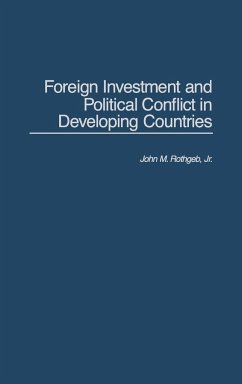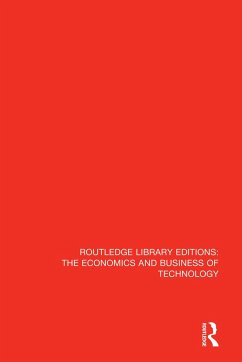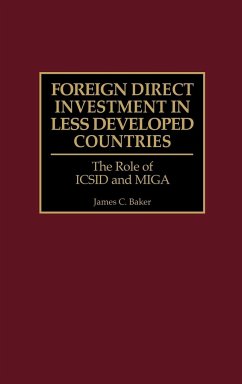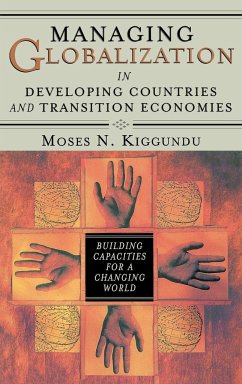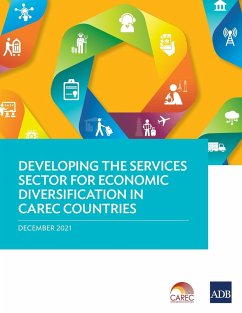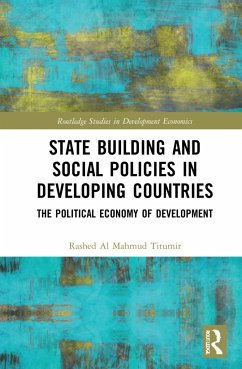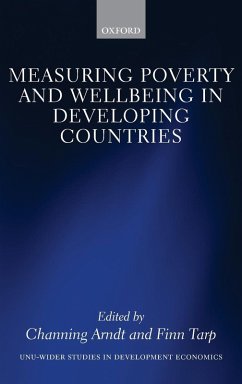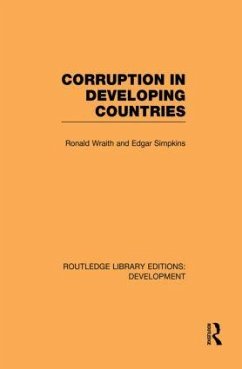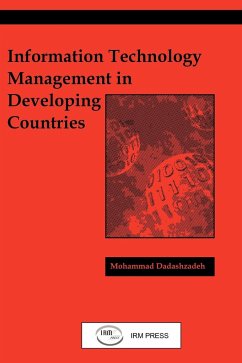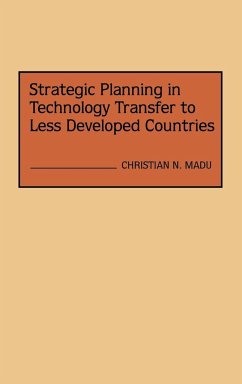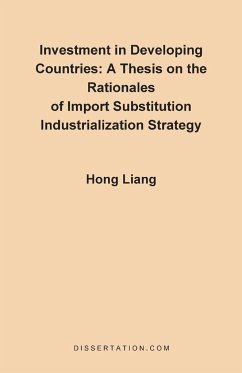
Investment in Developing Countries
A Thesis on the Rationales of Import Substitution Industrialization Strategy
Versandkostenfrei!
Versandfertig in 1-2 Wochen
21,99 €
inkl. MwSt.

PAYBACK Punkte
11 °P sammeln!
The purpose of this research paper is to try to clarify and evaluate the major issues and arguments in the debate on Import Substitution Industrialization Strategy (ISI) between the neoclassical economists and the development economists. In particular, it will focus on some basic underlying models employed by the two schools of thought, rather than on specific policy recommendations given by either school. It will conclude that the critiques against ISI from the neoclassical economists are based on a static equilibrium model, which can not fully comprehend the dynamic relationship between grow...
The purpose of this research paper is to try to clarify and evaluate the major issues and arguments in the debate on Import Substitution Industrialization Strategy (ISI) between the neoclassical economists and the development economists. In particular, it will focus on some basic underlying models employed by the two schools of thought, rather than on specific policy recommendations given by either school. It will conclude that the critiques against ISI from the neoclassical economists are based on a static equilibrium model, which can not fully comprehend the dynamic relationship between growth and ISI at a macroeconomic level. This paper starts by examining the historical background and formative influences of ISI, then goes on to compare and contrast the structuralist rationales for ISI and neoclassical rationales against it. The conclusion I reached is that the fundamental rationales behind ISI-- the infant industry argument, external economies and linkages effects--remain intellectually valid. The issue of terms of trade has important relevance to development economics but should be studied in a different context. The general conclusion of this paper is that import substitution as an industrialization strategy remains viable and may be of great importance or less developed countries that want to catch up economically with industrialized countries.





